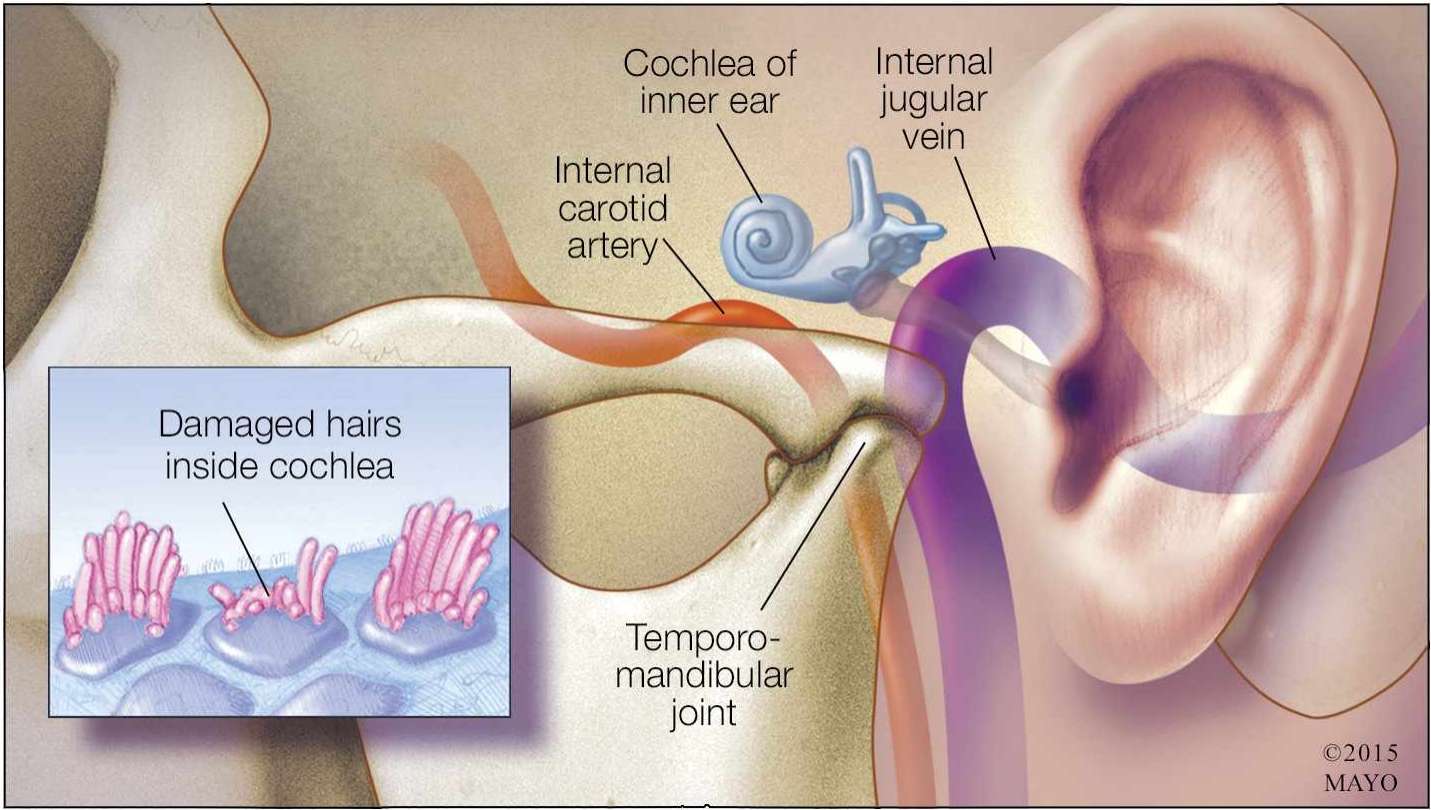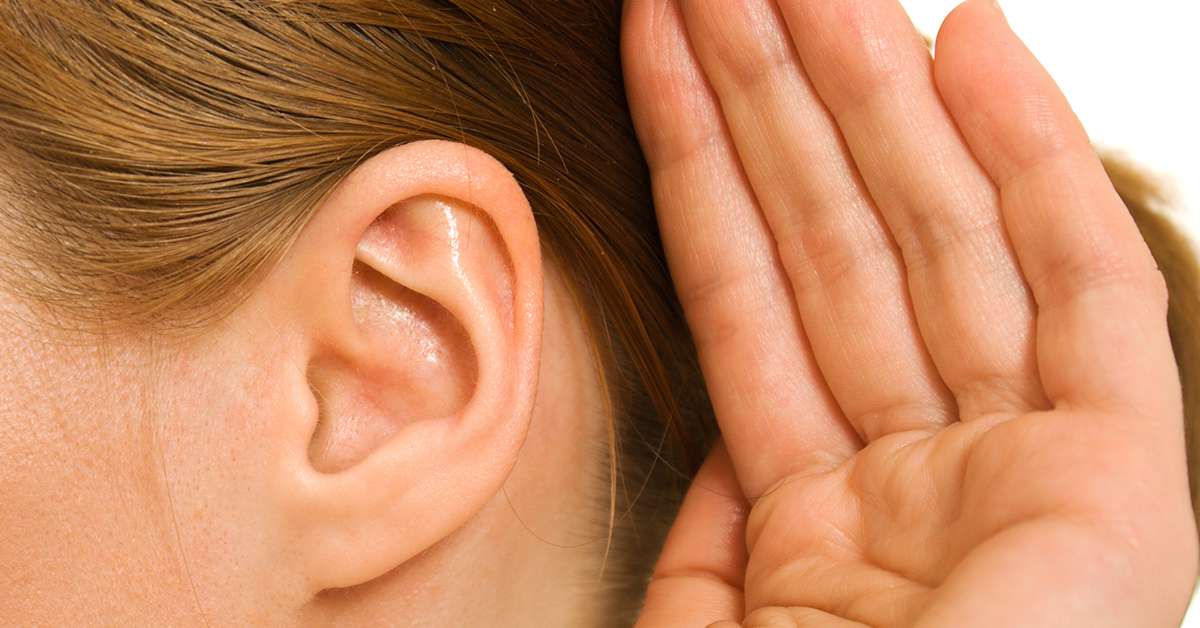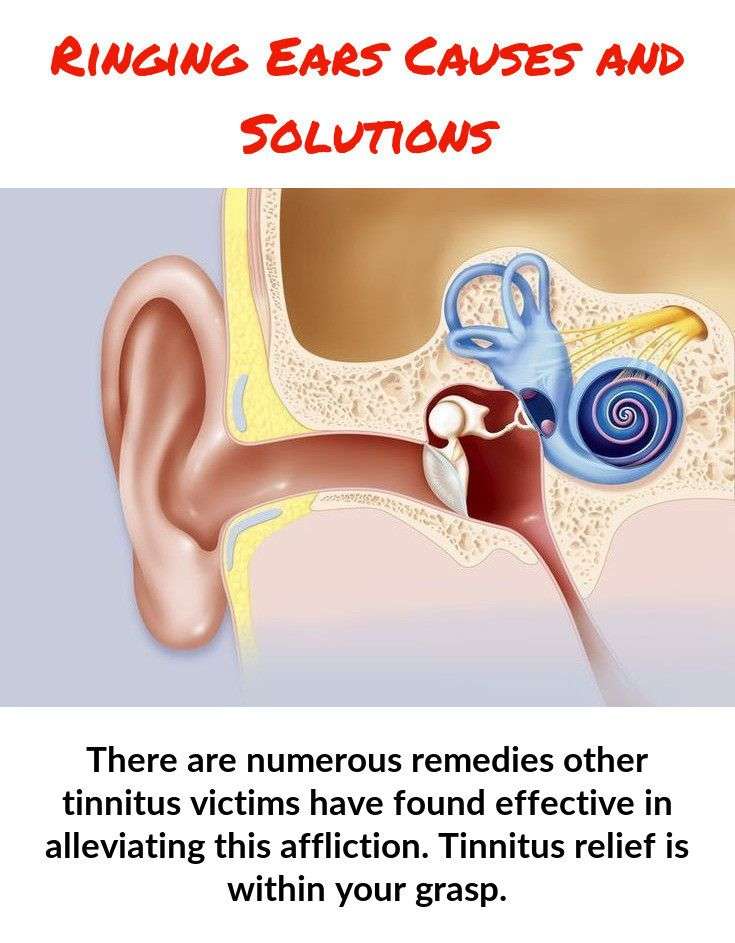Are Your Ears Still Ringing This Could Explain Why
You rely on your hearing to do everything from watching movies to listening to music and from engaging with people at work to spending time with loved ones. When your hearing is impacted because of ringing in your ears, or tinnitus, it can impact every activity you participate in. Fortunately, tinnitus can be diagnosed and treated in most cases.
There are many causes of tinnitus. Examples of common causes include:
Nasal Polyps Change The Pressure In Your Ear Canal Which Can Then Cause Tinnitus
Your sinus cavities are ideally supposed to be filled with air. When you have nasal polyps, the cavities are filled up with fluid filled polyps that then begin to block the flow of air in and out of your sinus cavities. You start to feel congested, lose your sense of smell and have persistent nasal discomfort like a runny nose or a postnasal drip.
Besides causing a lot of nasal discomfort, nasal polyps can also affect your Eustachian tube. The Eustachian tube is a very small and narrow tube that runs from your pharynx to the cavity in your middle ear. Its sole purpose is to help the pressure in your ear cavity normalize itself with the atmospheric pressure in your environment. Remember the last time you blew air with your mouth closed to make your ears feel normal while up in the skies on an airplane. That was you helping the Eustachian tube do its pressure-equalizing job better.
With sinus polyps, your Eustachian tube begins to falter and the pressure around your ear drums increase. When your ear drums come under constant undue pressure, they can begin to malfunction. This malfunction is then registered in your brains auditory cortex. Eventually, your brain thinks something is off with your ears and that you are not hearing the sounds you should be hearing. It therefore invents a compensatory noise that you hear as Tinnitus or a ringing in the ears. Learn more about how nasal polyps affect middle ear function here.
Sinus Ear Ringing Treatment
Fortunately, sinus ear ringing treatment associated with sinusitis-related tinnitus has a tendency to go away as you treat the sinus infection. This can be done with a minimally-invasive procedure such as a balloon sinuplasty that can be performed in a doctors office in 20 minutes or less on patients with a history of medical sinus obstruction.
Various illnesses and allergies can also cause ear clogging and ringing. In this situation, a decongestant nasal spray may help. Another possible reason for ear congestion is a middle ear infection. If you notice fluid drainage, a doctor may suggest removing the foreign object.
An infection in the middle lobe can cause ringing in the ears. It is a bacterial infection that travels through the Eustachian tube and can lead to a number of other issues, including a humming sound.
The condition is sometimes temporary and can be caused by ear infections or a buildup of earwax. However, the ringing in the ears can be permanent and can even lead to hearing loss.
To find out if you are experiencing ringing in the ears, visit your doctor immediately. A physician will be able to prescribe the proper medications for you and help you get back to normal.
Also Check: How To Relieve Sinus Pressure In Face
Ear Strain And Sinus Infections
From sore throats to stuffy noses, sinus infections bring about lots of unwelcome symptoms.
Headaches, sinus pressure, and pressure in the ears are common symptoms of a sinus infection. A ringing, clicking, or buzzing can be the outcome.
Nasal congestion frequently spreads to the ears during a sinus infection. This can produce accumulated earwax, which causes clogged ears and extreme pressure on the eardrums. Pressure on the little bones of the inner ear can trigger tinnitus symptoms.
You might not need to go to a hearing professional if the ringing is the result of a sinus infection, as the symptoms could improve on their own. If the ringing continues for more than a few days, however, you should schedule an appointment with a hearing professional.
Extended Exposure To Loud Noises

Lasting ringing in the ears will most likely not manifest due to the occasional concert. If you regularly expose your ears to very loud sounds, however, you might be introducing stress to the tender parts of your ears.
Buzzing, Clicking, or ringing can be the outcome when the eardrum and inner ears are put under the enormous strain of repeated exposure to intense noises.
Above and beyond tinnitus, temporary or even permanent hearing loss can be the result of continued exposure to loud sounds. Its essential to safeguard your ears from the elements and listen to music at a sensible volume level.
Read Also: Best Drink For Sinus Infection
Why Does My Ear Hurt After Cleaning It With Peroxide
Hydrogen peroxide, although a common household substance, is highly oxidizing in nature. People may insert it into their ears to soften earwax so that it can drain out. However, excessive use of hydrogen peroxide can lead to irritation of the skin inside the ear, which may cause inflammation and earaches.
Ear Infections In Gerd Patients
Chronic otitis media is a long-term ear problem resulting in the perforation in the eardrum. When left untreated, the middle ear can get infected with liquids. Ear problems are another known manifestation of GERD. A study was keen to understand the relationship between GERD and OME.
The scientists tested out antireflux medication on a patient with GERD and OME to understand whether reflux medication would directly alleviate OME symptoms. Scientists found that antireflux therapy and other lifestyle modifications associated with GERD improved both GERD and OME symptoms.
Publishers have two interesting suggestions regarding GERD-related OME:
Recent studies detected pepsin, a stomach enzyme apparent in reflux contents, in the fluid stuck in the middle ear. This reaffirms the suspicion that GERD may in fact be related to the development of OME.
Another study followed patients between ages 1 to 17 with OME and used anti-reflux therapy to improve the signs of GERD. This study also confirmed that anti-reflux medication helps with patients with resistant-therapy OME, leading them to believe that OME may be directly related to GERD.
Read Also: Does Sudafed Help With Sinus Infection
What Our Patients Are Saying
ï ï ï ï ï
Best ENT in the universe!
I never imagined my sinuses/breathing could feel this good. I had about 5 sinus infections a year and now it is practically none. I cannot say enough of Dr. Gilmoreâs professionalism, excellence as a surgeon and courteous bedside manner. Best ENT in the universe! He is a Keeper!
How Do I Use Hydrogen Peroxide To Unblock My Ear
How to use hydrogen peroxide to remove earwax
You May Like: Can You Beat A Sinus Infection On Your Own
What Happens If You Wait Too Long To Get Wisdom Teeth Out
Gum disease: The longer you wait, the more at risk of gum disease you are. Impacted, partially erupted wisdom teeth arent easy to clean, and you could develop pericoronitis. Its the inflammation of gum tissue around the crown of a tooth. Tooth decay: When teeth are difficult to clean, the risk of decay increases.
Also Check: How To Clear Sinus Infection At Home
Dilation Of The Eustachian Tube
More recently, dilation of the eustachian tube using balloon catheter has gained attention as a method of treating eustachian tube obstruction. There are two methods of performing this procedure depending on the route of the catheter introduction and the area of the Eustachian tube to be dilated. Dennis Poe have popularized the transnasal introduction and the dilation of the nose side of the eustachian tube. Muaaz Tarabichi pioneered the transtympanic introduction of the balloon catheter and the dilatation of the proximal part of the cartilaginous eustachian tube.
Recommended Reading: Can A Sinus Infection Delay Your Period
Balloon Sinuplasty For Sinusitis And Tinnitus At Sinus Solutions Of South Florida
Dr. Napoleon G. Bequer, a leading Ear, Nose, and Throat Doctor in Tampa and West Palm Beach, has seen balloon sinuplasty transform hundreds of lives. For more information on what to expect after balloon sinuplasty or any of our many other procedures contact Sinus Solutions of South Florida today!
Find the sinusitis and tinnitus relief you deserve. Call us at 790-7744 or request a consultation online.
Related Resources:
Tips For Seeking Medical Treatment

If your anxiety or tinnitus symptoms progress or do not respond to home remedies, you may need to seek medical treatment.
Your doctor will likely do an ear exam for tinnitus and ask about your health history. Make sure to bring a list of your symptoms, noting the frequency of them and any remedies youve tried.
If your primary care physician cannot find a cause, they may refer you to an otolaryngologist for a more thorough exam or an audiologist to measure your hearing.
Whether or not a medical professional finds a cause for your tinnitus, there are currently no FDA-approved drugs to treat it. But some physicians may use certain medications off label to treat your symptoms. This is a conversation to have with your doctor.
If your symptoms include anxiety, your doctor may refer you to a mental health expert, such as a psychologist or psychotherapist. Treatment for anxiety may help relieve your tinnitus symptoms.
Be sure to bring a list of your symptoms, noting their frequency and severity. Mention any home remedies or other forms of treatment youve tried.
Common methods for treating anxiety include cognitive behavioral therapy , biofeedback, and lifestyle modifications like exercise, meditation, and breath work.
More specifically, a treatment regimen called tinnitus retraining therapy uses CBT and supplemental sound masking to help you adapt to tinnitus.
Also Check: Will Mucinex Help With Sinus Congestion
And What Increases Blood Pressure
There are several factors that increase blood pressure, such as:
- Excess of salt in the diet
- Stress
- Caffeine
- High blood pressure
And as one of the causes of tinnitus is high blood pressure, it would be advisable for those affected to focus their efforts on trying to keep stress and high blood pressure at bay.
Allergy Testing And Immunotherapy
The Bottom Line
Allergyproblems are extremely prevalent in the United States. The American Academy ofOtolaryngic Allergy estimates that allergies significantly affect about50 million Americans, and allergies represent some of the most common types ofchronic illness in the US. Allergy issues can range from seasonal allergies,such as allergic reactions to certain types of pollen, to environmentalallergies like problems with pet dander and dust mites. Allergic responses toinsect stings, like bee venom, can also be severe and even life-threatening.
Types of Allergies
There areseveral common types of allergies, classified according to the kind of allergenor substance that triggers the allergy. These allergy types include:
Seasonalallergies This type of allergy is triggered by exposure to pollen. As thename implies, seasonal allergies are usually limited to one or two seasons ofthe year. For example, ragweed pollen is a frequent cause of seasonal fallallergies, and pollen from trees is often the source of spring and seasonal summerallergies. Seasonal allergies are usually minimized in the winter due to lowpollen counts.
Mold allergies Many species of mold can trigger allergies. These species include Penicillium, Aspergillus, and Alternaria.While it is possible to suffer mold allergies from outdoor exposure, most moldallergy cases occur from indoor exposure due to a higher concentration of moldspores.
Allergy Symptoms
Related: Facts about sinus headaches
You May Like: When Should You Go To The Doctor For Sinus Infection
What Are The Best Over
Thankfully, there are many highly effective over-the-counter medications available to help remove the sinus congestion.
Pain relievers help reduce the pain caused by the increased pressure in the sinuses. Aspirin, acetaminophen , Aleve , and Advil or Motrin are effective pain relievers. Nasal irrigation can also be used to relieve the congestion in the sinuses.
Oral decongestants can give better relief than nasal sprays but a few side effects may result. Mucus thinner that improves sinus drainage is called a mucolytic and is often prescribed along with cough suppressants. Guaifenesin is a mucolytic that is commonly used for sinusitis.
Always follow the instructions on the label if you are using OTC medications. Make sure you consume the recommended dose for the recommended duration based on your age and weight. Steroid sprays should not be used for a longer period than that mentioned on the label. Excessive use can cause the mucous membranes to swell more than before.
If symptoms persist for more than 10 days and breathing becomes difficult, the infection may be due to bacteria and you may need to consult a doctor for further treatment. Antibiotics such as amoxicillin may be recommended. Surgery is the last resort for people suffering from chronic sinusitis and is done to improve the drainage in the sinuses.
You May Like: What Can Tinnitus Be A Symptom Of
Can Wisdom Teeth Cause Ear Pain
Symptoms of pain at the surgical site and even pain or ringing to the ear may occur four to five days following surgery. Call the office if this occurs. The socket will need to be examined and treated. Failure to treat a dry socket can cause increased pain and may contribute to serious bone or whole body infections.
Recommended Reading: Sinus Infection Do I Need To See A Doctor
Don’t Miss: Why Does My Sinus Smell Bad
What Causes Venous Sinus Stenosis
Venous sinus stenosis means that the large veins of the brain are narrowed. From my experience with hundreds of patients, one of the most common cause of venous sinus stenosis is enlargement of arachnoid granulations. The arachnoid granulations are valves that normally occur in the wall of the venous sinuses and facilitate from of CSF from the brain to the bloodstream. These can enlarge and protrude inside the venous sinuses causing narrowing. The reason of enlargement of the arachnoid granulations remains elusive.
Do Allergies Cause Hearing Loss Or Tinnitus
Spring has sprung! Along with ushering in warmer weather and beautiful blossoms, the season, unfortunately, increases pollen production and allergy symptoms. Although airborne allergens exist throughout the year, we see a dramatic increase in patients who suffer from allergy-related hearing loss and tinnitus in springtime. This may lead you to wonder: Do allergies cause hearing loss or tinnitus? Yes, in fact, allergies can impact hearing.
Take our Tinnitus Impact Survey to determine the severity of your tinnitus
Allergic rhinitis, more commonly referred to as hay fever, can cause a variety of symptoms, including itchy eyes, sneezing, a runny nose, a feeling of pressure in the ear, and the sensation that the ear is clogged. For some patients, the inflammation and/or excess fluid diminishes the persons ability to hear or creates tinnitus symptoms . Those already suffering from tinnitus may hear louder ringing or experience worsening tinnitus symptoms.
Read Also: Will Zpack Treat Sinus Infection
Diagnosing The Underlying Cause
Most patients experiencing new pulsing sounds in one or both ears start by talking to their primary care doctor or an ear, nose and throat doctor. If the cause of the pulsatile tinnitus is simple, like an ear infection, an ENT or primary care provider will be able to diagnose it and offer treatment.
But in some cases, an ENT or primary care doctor cannot diagnose the cause of the tinnitus. Depending on a patients specific symptoms, they may be referred to anophthalmologist. Or they might be referred to a vascular specialist who can examine the underlying issues in veins or arteries.
Recommended Reading: Angel Sign Language
What Are The Causes Of Tinnitus

Tinnitus is categorized as being either pulsatile or nonpulsatile.
People who suffer from pulsatile tinnitus report hearing the sound of their own pulse. It is caused by abnormal blood flow within the arteries of the neck or inside the ear, and is fairly rare. Possible causes include:
- Fluid in the middle ear.
- Ear infections.
- Head and neck tumors.
- Blocked arteries.
Nonpulsatile tinnitus ringing in the ears not accompanied by any type of rhythm is considerably more common. It can be caused by a variety of conditions including:
- Presbycusis .
Dont Miss: How To Do Abc In Sign Language
Also Check: What Is The Best Otc Sinus Allergy Medicine
Obstructions In The Middle Ear
Blockages in the ear canal can cause pressure to build up in the inner ear, affecting the operation of the ear drum. Moreover, objects directly touching the ear drum can irritate the organ and cause the perception of tinnitus symptoms. Common obstructions include:
- Excessive ear wax
- Loose hair from the ear canal
- Dirt or foreign objects
In many cases, the removal of the blockage will alleviate tinnitus symptoms. However, in some situations, the blockage may have caused permanent damage that leads to chronic tinnitus.
Exposure To Sudden Loud Sound
An intense, abrupt noise like that of an explosion can cause ringing in your ears. You might notice your hearing is muffled afterward, as well. While this is usually temporary, loud noises can permanently damage your hearing. The permanent damage stems from the loud noise damaging the tiny hairs in the cochlea. As a result, your brain doesnt receive the signals like it should to hear properly. It can trigger your neurons, which will lead to tinnitus along with hearing loss.
Recommended Reading: Nose And Sinus Institute Of Boca Raton